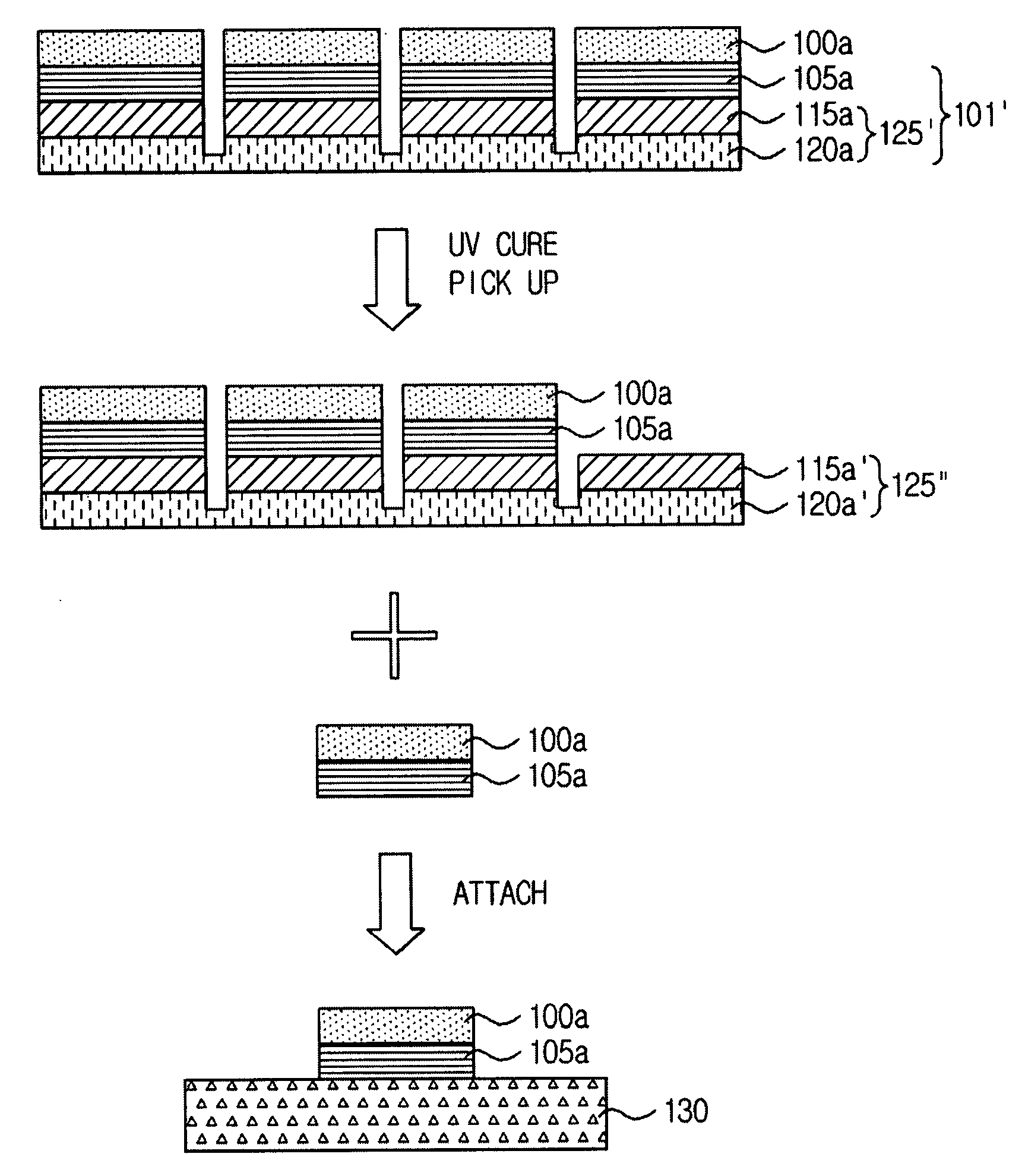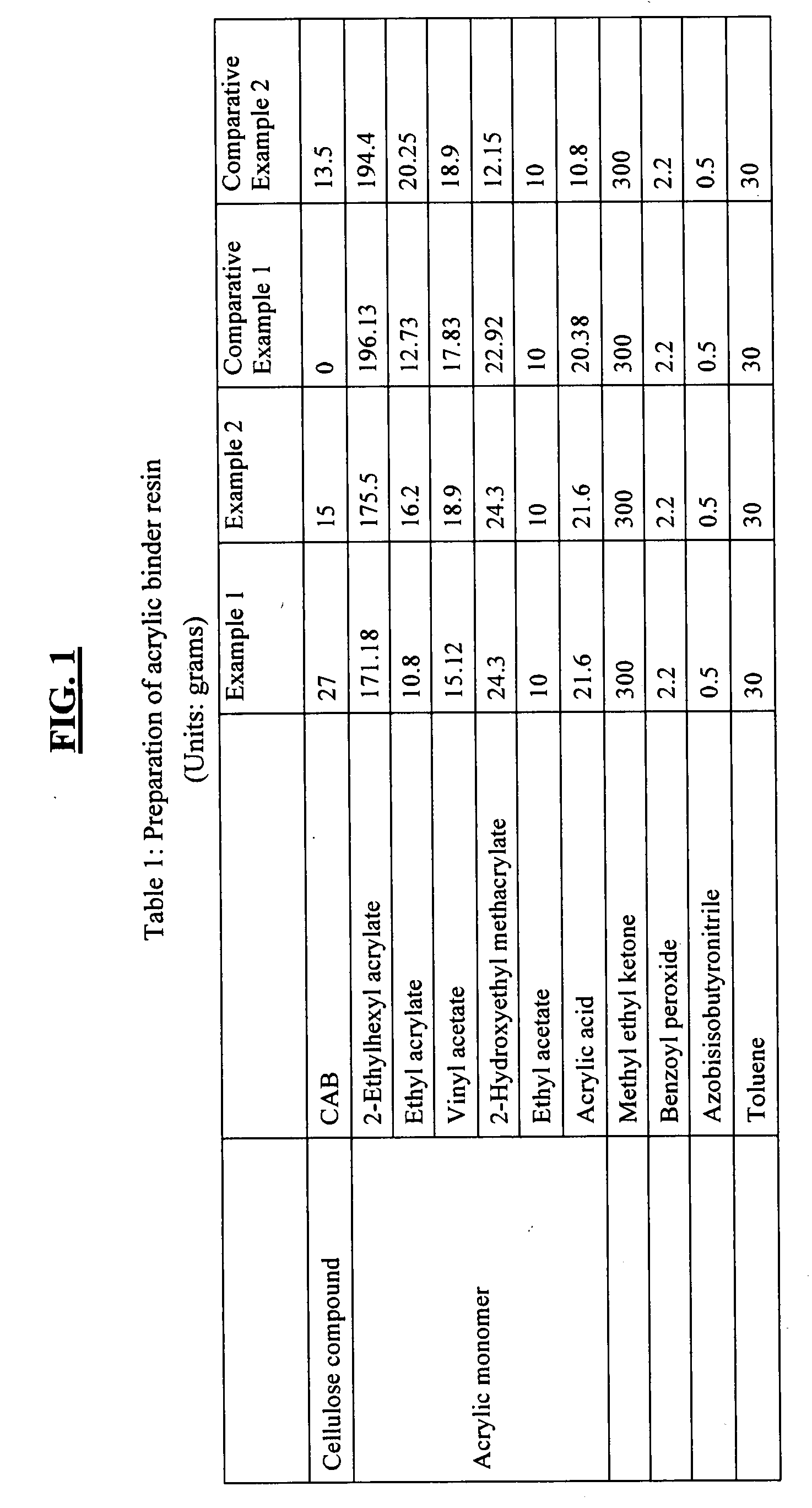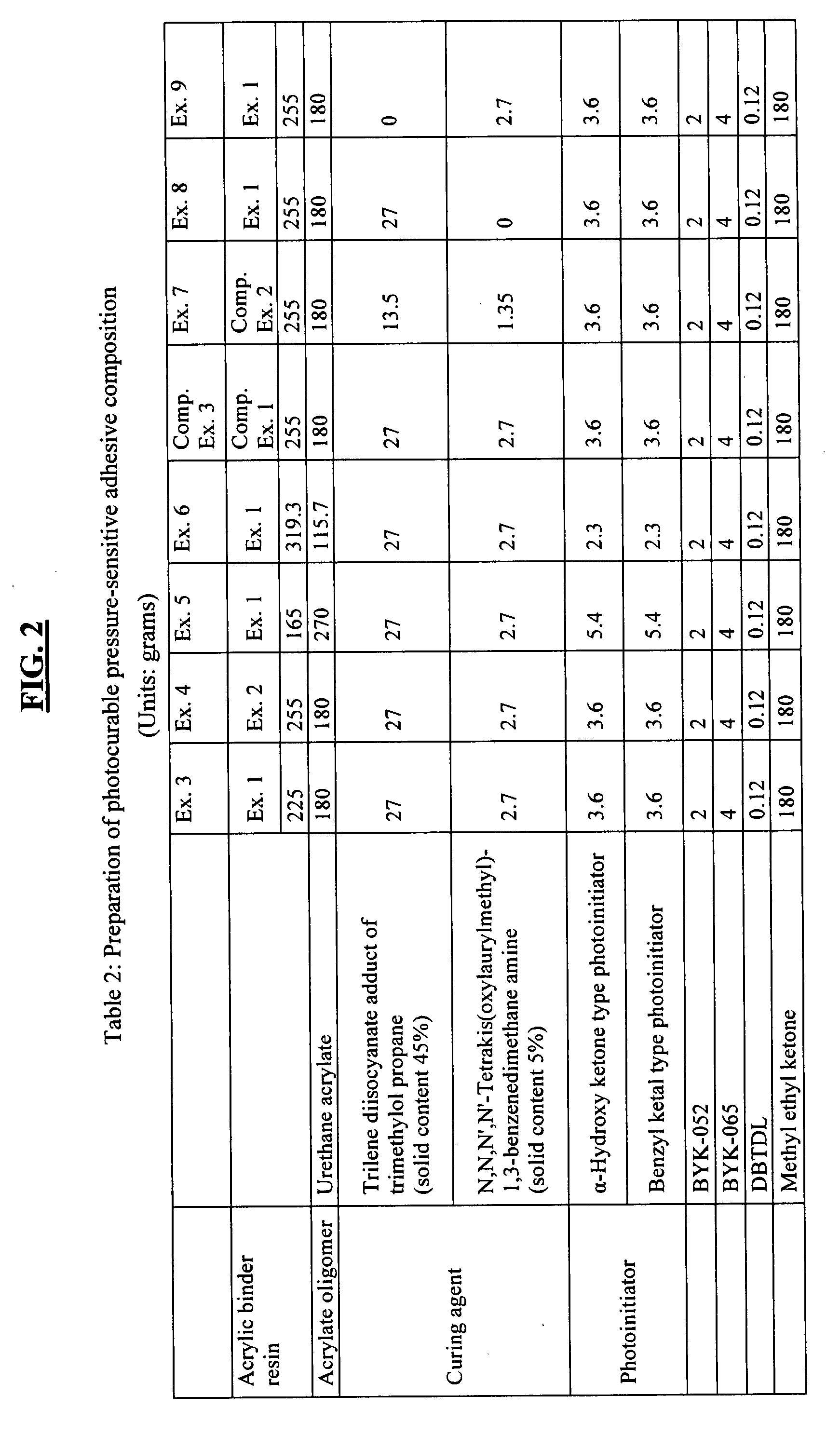Photocurable pressure-sensitive adhesive composition including acrylic binder resin, adhesive tape using the same, and associated methods
a pressure-sensitive adhesive and acrylic binder technology, applied in the direction of adhesive types, textiles and paper, fibre treatment, etc., can solve the problems of poor material properties, high cost of adhesive composition, limited unreactive glass substrates on which to apply adhesive compositions, etc., to achieve excellent initial adhesion, good change of peel strength, and excellent photocurability
- Summary
- Abstract
- Description
- Claims
- Application Information
AI Technical Summary
Benefits of technology
Problems solved by technology
Method used
Image
Examples
example 1
Preparation of Acrylic Binder Resin
[0093] Reagents were put into a 1 L four-neck flask according to the mixture given in Table 1 of FIG. 1. The process of reacting the reagents was as follows. First, 300 g of methyl ethyl ketone and 30 g of toluene were put into the four-neck flask as solvent. The four-neck flask was provided with a reflux condenser at one side thereof, a thermometer at another side thereof, and a dropping funnel at another side thereof.
[0094] The temperature of the four-neck flask was increased to 60° C. Subsequently, 171.18 g of 2-ethylhexyl acrylate, 10.8 g of ethyl acrylate, 15.12 g of vinyl acetate, 24.3 g of 2-hydroxyethyl methacrylate, 21.6 g of acrylic acid, and 27 g of cellulose acetate butyrate (manufactured by Eastman Corp.; hereinafter referred to as “CAB”) were mixed with 2.2 g of benzoyl peroxide to form a mixed solution, and then the mixed solution was dropped at a temperature of 60° C. to 70° C. for 3 hours using the dropping funnel.
[0095] The agi...
example 2
Preparation of Acrylic Binder Resin
[0096] As indicated in Table 1, an acrylic binder resin was prepared as in Example 1, except that, as a composition of an acrylic monomer, 175.5 g of 2-ethylhexyl acrylate, 16.2 g of ethyl acrylate, 18.9 g of vinyl acetate, 24.3 g of 2-hydroxyethyl methacrylate, and 21.6 g of acrylic acid were used, and the amount of CAB used was 15 g.
example 3
Preparation of Photocurable Pressure-Sensitive Adhesive Composition
[0099] A photocurable pressure-sensitive adhesive composition was prepared using the acrylic binder resin prepared in Example 1 through a commonly-used method, in the composition and amounts given in Table 2 of FIG. 2. In Table 2, BYK-052 and BYK-065 are antifoaming agents, and DBTDL is a urethane catalyst.
PUM
| Property | Measurement | Unit |
|---|---|---|
| Fraction | aaaaa | aaaaa |
| Fraction | aaaaa | aaaaa |
| Fraction | aaaaa | aaaaa |
Abstract
Description
Claims
Application Information
 Login to View More
Login to View More - R&D
- Intellectual Property
- Life Sciences
- Materials
- Tech Scout
- Unparalleled Data Quality
- Higher Quality Content
- 60% Fewer Hallucinations
Browse by: Latest US Patents, China's latest patents, Technical Efficacy Thesaurus, Application Domain, Technology Topic, Popular Technical Reports.
© 2025 PatSnap. All rights reserved.Legal|Privacy policy|Modern Slavery Act Transparency Statement|Sitemap|About US| Contact US: help@patsnap.com



